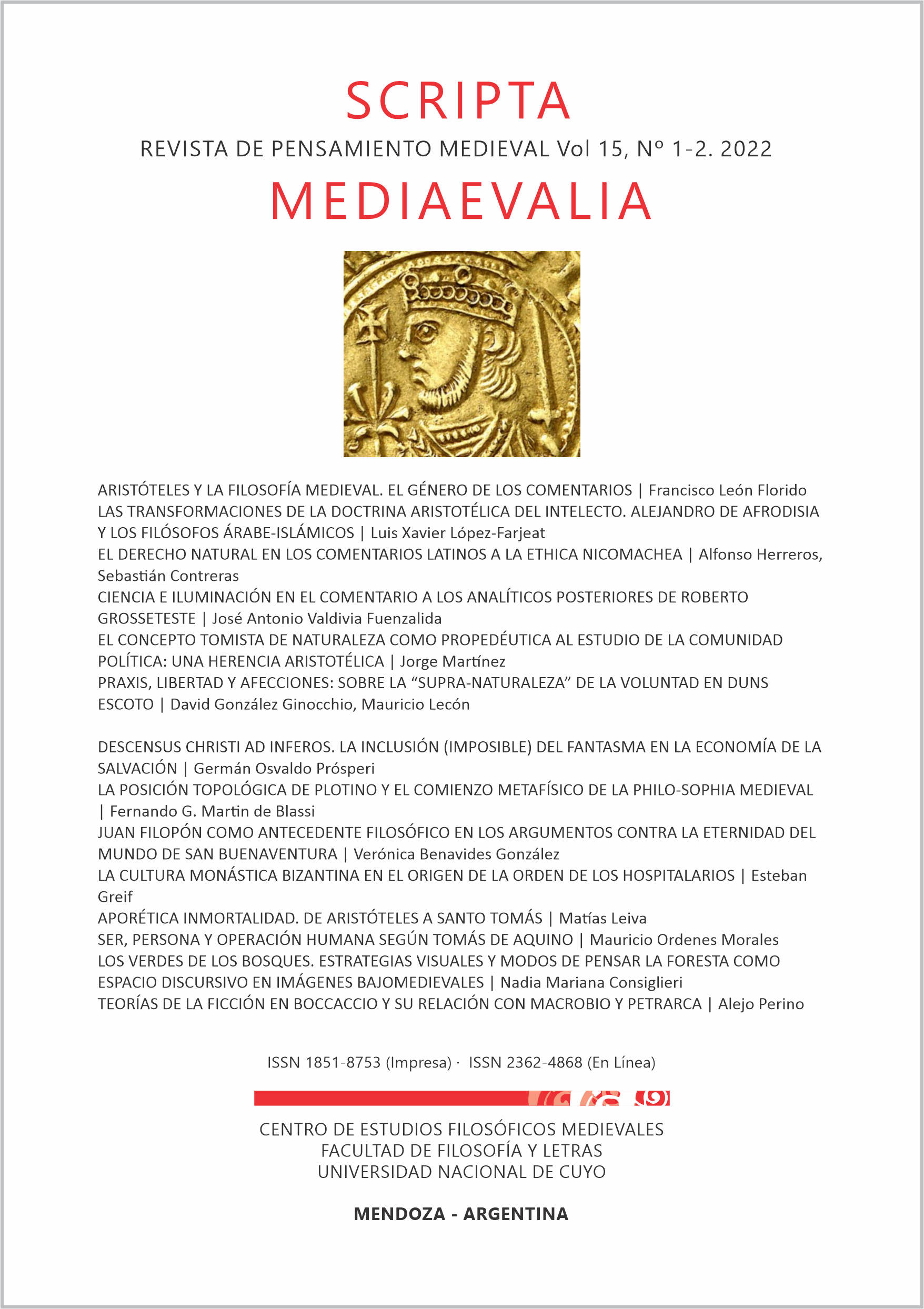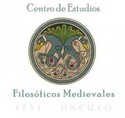Aporetic immortality
From Aristotle to Thomas Aquinas
DOI:
https://doi.org/10.48162/rev.35.019Keywords:
hylomorphism, soul, immortality, intellect, bodyAbstract
Aristotle was the first Western Philosopher to undertake the task of producing a rational, scientific-based theory on the human individual soul. Many have followed him in this enterprise, but several of them tinted his psychology with ideas from other philosophers and schools, mainly Plato and Neoplatonism. Saint Thomas Aquinas stands among those who tried to avoid this. In this article we will show that not only he did not consider platonic or Neoplatonic ideas in his theory about the soul and its immortality but remained in the peripatetic realm and produced a rational, Revelation-free philosophy to argue for it based on certain passages and ideas of the De Anima. Also, we will show that Aristotle considers both a strong form of anthropologic hylomorphism and a soft one, being the latter the one used by Aquinas to structure his theory on the immortality of the soul.
References
Aristotle. Generation of Animals. Trans. A. Platt. The Complete Works of Aristotle. Vol. 1. (New Jersey & West Sussex: Princeton University Press, 1984).
Aristotle. History of Animals. Trans. d’ A. W. Thompson. The Complete Works of Aristotle. Vol. 1. (New Jersey & West Sussex: Princeton University Press, 1984).
Aristotle. Metaphysics. Trans. W. D. Ross. The Complete Works of Aristotle. Vol. 2. (New Jersey & West Sussex: Princeton University Press, 1984).
Aristotle. Nicomachean Ethics. Trans. W. D. Ross. The Complete Works of Aristotle. Vol. 2. (New Jersey & West Sussex: Princeton University Press, 1984).
Aristotle. On the Soul. Trans. J. A. Smith. The Complete Works of Aristotle. Vol. 1. (New Jersey & West Sussex: Princeton University Press, 1984).
Thomas Aquinas, Commentary on Aristotle’s De Anima. Trans. Foster & Humphries. (New Haven: Yale University Press, 1951).
Thomas Aquinas, The Summa Theologica. Trans. Fathers of the English Dominican Province. (New York: Benziger Bros, 1947).
Thomas Aquinas, Summa Contra Gentiles. Vol. 2. Trans. F. Anderson. (New York: Hanover House, 1955).
Constantinos Athanasopoulos, “Ousia in Aristotle's Categories”. Logique et Analyse 53, n.° 210 (2010): 211-243.
Richard Cross, “Is Aquinas’s proof for the indestructibility of the soul successful?”. British Journal for the History of Philosophy5, n.° 10 (1997): 1-20.
Joseph F. Donceel, “Immediate Hominization and Delayed Hominization”. Theological Studies 31, n.°1 (1970): 76-105.
Linda L. Farmer, “Straining the Limits of Philosophy: Aquinas on the Immortality of the Human Soul”. Faith and Philosophy: Journal of the Society of Christian Philosophers 20, n.° 2 (2003): 208-2017.
Alfonso Gómez-Lobo, “Inmortalidad y Resurrección. Problemas filosóficos y respuestas actuales”. Estudios Públicos, n.°112 (2008): 268-284.
Paula Gottlieb&Elliott Sober, “Aristotle on «Nature Does Nothing in Vain»”. The Journal of the International Society for the History of Philosophy of Science 7, n.° 2 (2017): 246–271.
Joseph A. Novak, “Aquinas and the Incorruptibility of the Soul”. History of Philosophy Quarterly 4. n.° 4 (1987): 405-421.
David S. Oderberg, “Hylemorphic Dualism”. Social Philosophy and Policy 22, n.° 2 (2005): 70-99.
Joseph Owens, "Aquinas on the Inseparability of Soul from Existence". New Scholasticism 61, n.°3 (1987): 249-270.
Adam Wood, “Disembodied Souls without dualism: Thomas Aquinas on why you won’t go to heaven when you die (but your soul just might)”. Christian Scholar's Review 49, n.° 3 (2020): 215-231.
Adam Wood, Thomas Aquinas on the Immateriality of the Human Intellect. (Washington D.C.: The Catholic University of America Press. Washington, 2020).
Downloads
Published
How to Cite
Issue
Section
License

This work is licensed under a Creative Commons Attribution-NonCommercial-ShareAlike 3.0 Unported License.






































